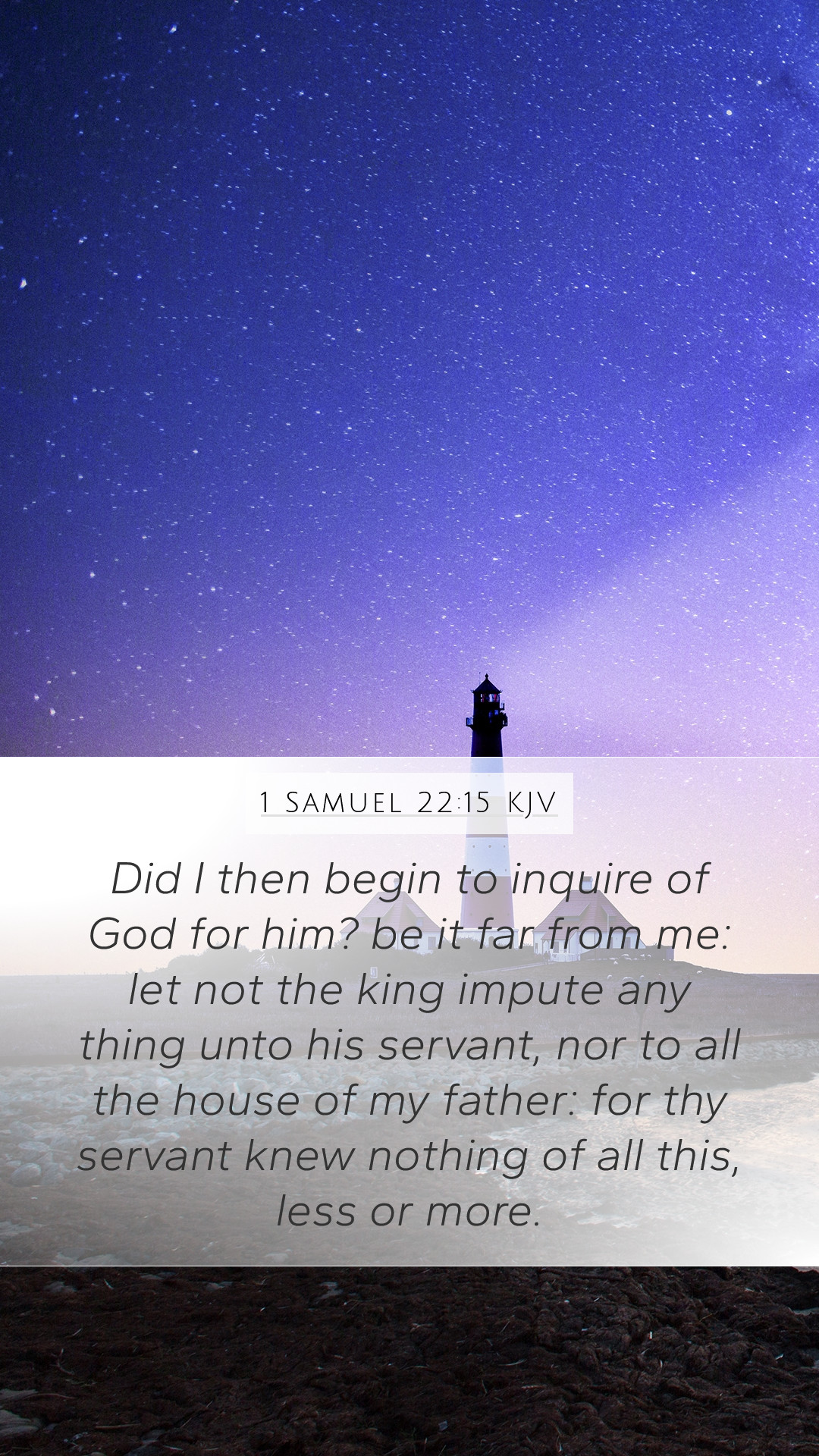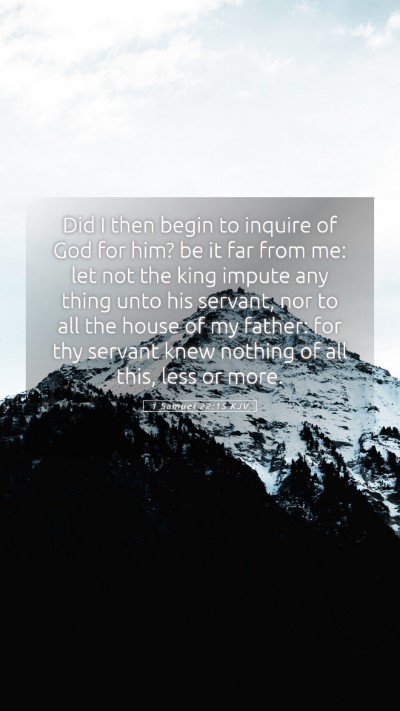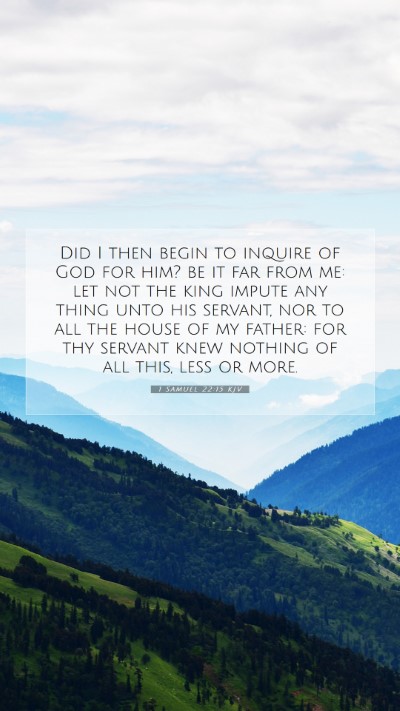Understanding 1 Samuel 22:15 - A Scripture Analysis
Bible Verse: 1 Samuel 22:15
Text: "Did I then begin to inquire of God for him? Be it far from me: for I will not put my life in the hand of the king." (1 Samuel 22:15, KJV)
Overview of 1 Samuel 22:15
This verse emerges within a tense narrative where David, a fugitive at the time, is confronted about his decisions concerning Ahimelech, the priest who provided him aid. The gravity of David's situation underscores a broader theme of divine guidance and the precariousness of loyalty amidst a backdrop of survival and moral dilemmas.
Bible Verse Meanings and Interpretations
The insights gathered from respected public domain commentaries provide a layered understanding of this verse:
-
Matthew Henry's Commentary
Henry highlights the moral implications of David's statement, reflecting David's deep commitment not only to God but also to his own integrity. The question posed indicates a refusal to resort to divine inquiry for selfish motives. David's response emphasizes that he distanced himself from deceit and maintains a clear ethical line.
-
Albert Barnes' Notes
Barnes points out that David's words convey his recognition of the seriousness surrounding his actions. His assertion that he would not put himself under the king's authority speaks to a broader understanding of divine protection versus human allegiance. The refusal to compromise can be seen as a manifestation of his trust in God's providential care.
-
Adam Clarke's Commentary
Clarke provides a historical lens, noting that David's leadership experience, evidenced even in crisis moments, shapes his response. He views his relationship with God as paramount, prioritizing divine direction over the whims of earthly rulers. Clarke's reflections suggest that true inquiry of God must come from a place of sincerity rather than self-serving motives.
Applications and Significance
This verse invites readers to reflect on issues of loyalty and integrity within their own lives.
- Authenticity in Worship: The verse underlines the necessity of genuine engagement with God, advocating for seeking divine wisdom that is aligned with a righteous heart.
- Divine Versus Human Authority: It raises important questions about the balance between obeying earthly authorities and remaining faithful to spiritual convictions.
- Trust in God's Plan: David's refusal to compromise, even under pressure, encourages believers to trust in God's protection during trials.
Cross References
- Psalm 56:1-3: Expresses David's trust in God amid fear and persecution.
- 1 Samuel 21:1-6: Provides context for David's escape and need for aid from Ahimelech.
- Proverbs 3:5-6: Offers wisdom on trusting in the Lord rather than relying on one’s understanding, paralleling David’s reliance on God.
Conclusion
1 Samuel 22:15 serves as a poignant reminder of the challenges faced when navigating faithfulness in difficult circumstances. David's example encourages believers to engage in Bible study insights, seeking Biblical exegesis that emphasizes integrity and reliance on God's guidance over human allegiance. We can learn how to apply these vital lessons in our daily lives, reflecting upon how to incorporate Bible study tools that allow us to dive deeper into the meaning of Bible verses.


